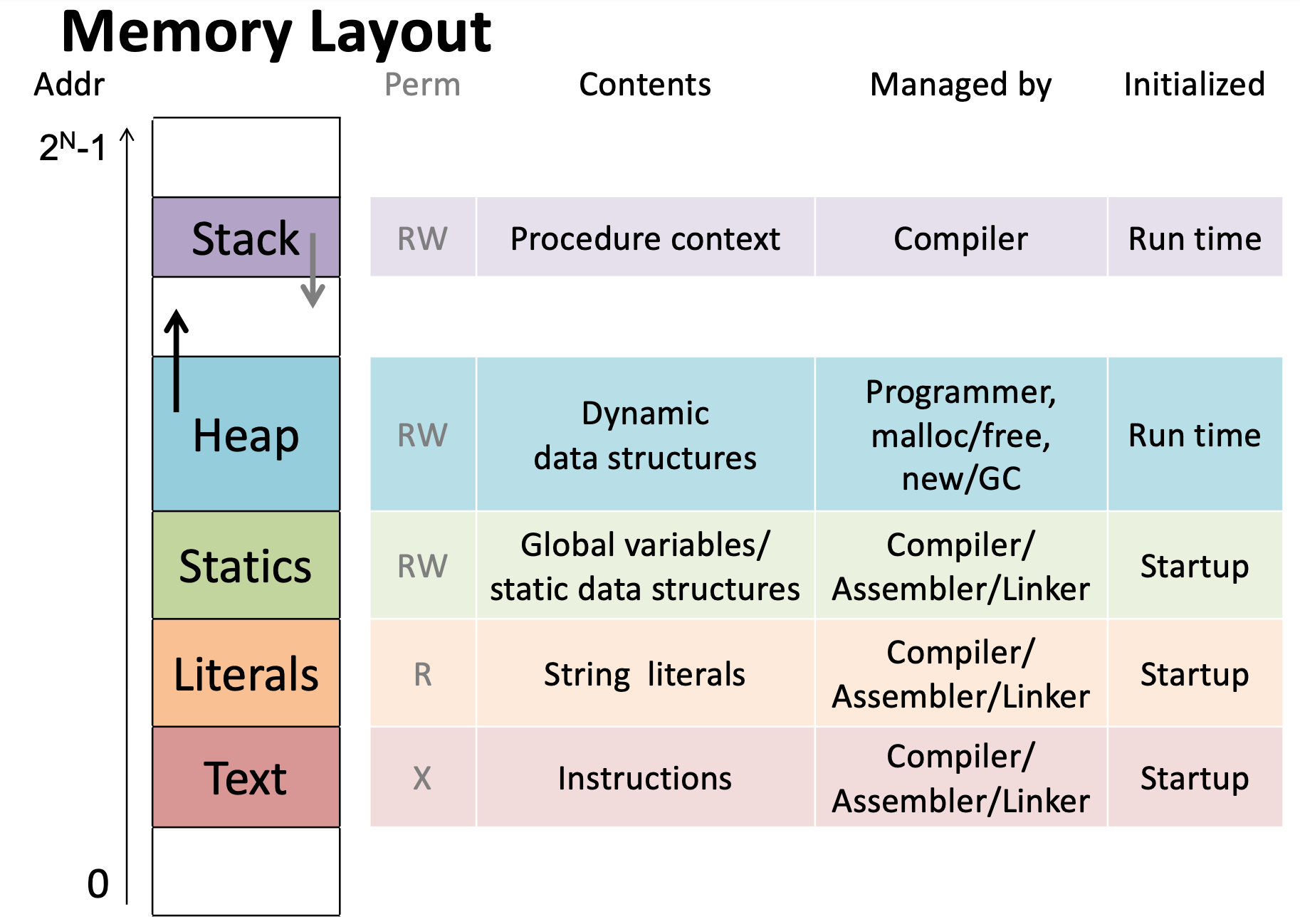CS 208 w20 lecture 2 outline
1 Review
1.1 POLL: If the word size of a machine is 64‐bits, which of the following is usually true? (pick all that apply)
- 64 bits is the size of a pointer
- 64 bits is the size of an integer
1.2 POLL: By looking at the bits stored in memory, I can tell if a particular 4‐bytes is being used to represent an integer, floating point number, or string.
1.3 POLL: If the size of a pointer on a machine is 6 bits, the address space is how many bytes?
2 Pointers
2.1 First look
- The number 240 is stored at address 0x20 (
240 = 0xf0 = 0x00 00 00 f0using little endian). - A pointer stored at address
0x08and points to the contents at address0x20. - A pointer to a pointer is stored at address
0x00. - The number 12 is stored at address
0x10. Is it a pointer? How do we know values are pointers or not? - How do we manage use of memory?
2.2 C example

int* p; // p: 0x04 int x = 5; // x: 0x14, store 5 at 0x14 int y = 2; // y: 0x24, store 2 at 0x24 p = &x; // store 0x14 at 0x04 // load the contents at 0x04 (0x14) // load the contents at 0x14 (0x5) // add 1 and store sum at 0x24 y = 1 + *p; // load the contents at 0x04 (0x14) // store 0xF0 (240) at 0x14 *p = 240;
2.3 POLL: C mystery
int a = 10; int b = 20; int *pa = &a; a += 5; int *pb = &b; *pa = *pb - *pa; *pb += a; printf("a = %d b = %d\n", a, b);
3 C Arrays
int a[6]; // declaration, stored at 0x10 // indexing: a[0] = 0x015f; a[5] = a[0]; // No bounds checking a[6] = 0xbad; // writes to 0x28 a[-1] = 0xbad; // writes to 0xc // an "array" is just a pointer to an element int* p; // stored at 0x40 // these two lines are equivalent p = a; p = &a[0]; // write to a[0] *p = 0xa;
4 C Strings
Just an array of char (array of 1-byte values) ending with a NULL terminator (0x00 or '\0')
4.1 POLL: how would you declare an array of three strings (i.e., what is the type signature)?
5 C Memory Management, C Structures

5.1 point_test.c
6 Why C?
6.1 Why learn C?
- Think like actual computer (abstraction close to machine level) without dealing with machine code
- Understand just how much Your Favorite Language provides
- Still widely used
- Pitfalls still fuel devastating reliability and security failures today.
6.2 Why not use C?
- Probably not the right language for your next personal project.
- It "gets out of the programmer's way" even when the programmer is unwittingly running toward a cliff.
- Advances in programming language design have produced languages that fix C's problems while keeping its strengths.
- Rust is a good example